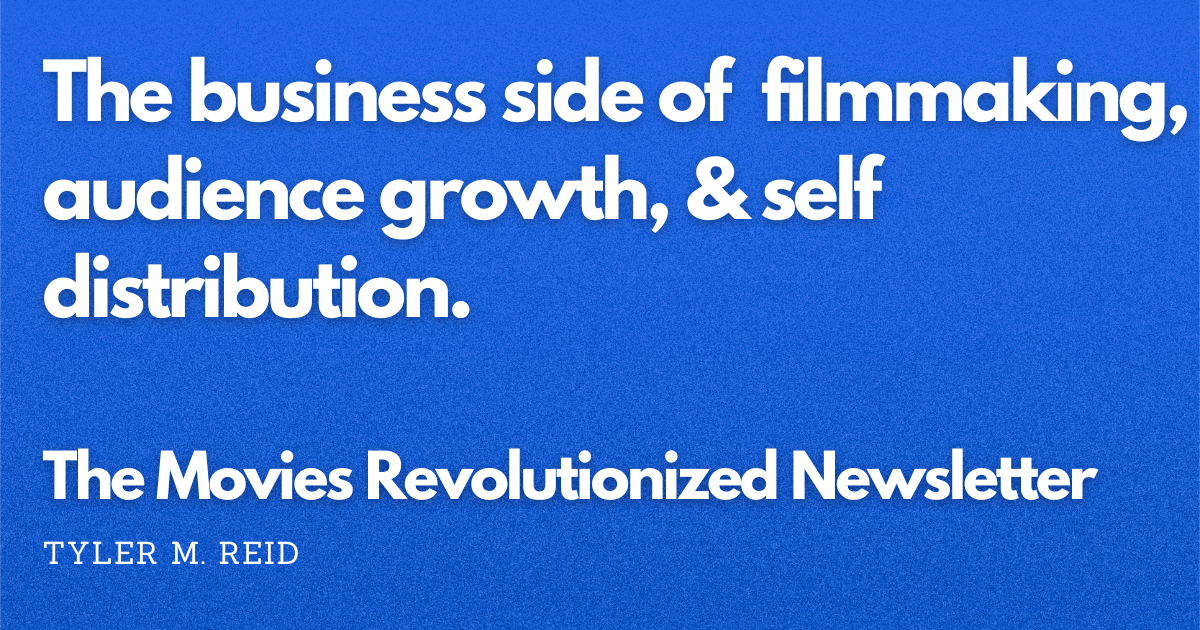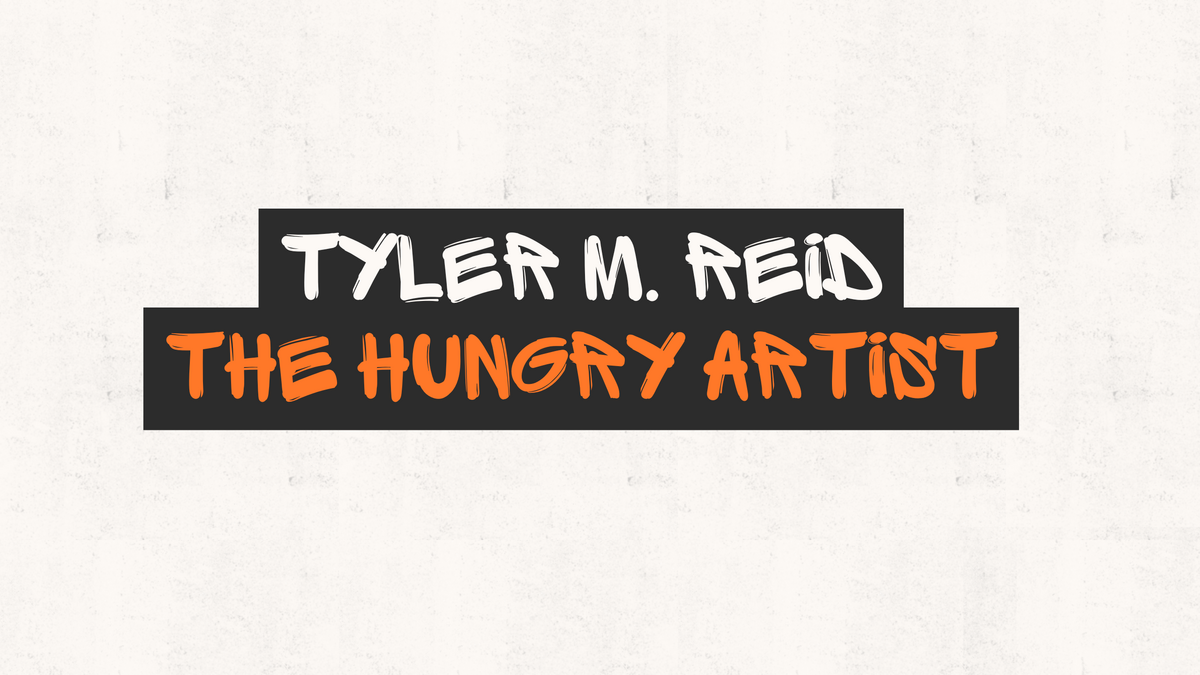Film Grants Are One Path to Funding Your Indie Film
First lets quickly define a film grant. A film grant is a financial award given to filmmakers, typically from organizations, foundations, or government bodies, to support the creation, development, or production of a film project. Unlike loans, these grants do not need to be repaid, making them an essential funding source for independent filmmakers and projects that may not have access to traditional financing methods.
There are a good amount of film grants in the US and also in the EU. This is good to know if you ever consider using an international co-production to make your film.
Like stated above, film grants offer a great many benefits. The two greatest benefits is that you do not have to pay the money back. This puts you, the filmmaker in a great situation because there are no return on investment expectations that you have to met. Secondly, those grants show future funders, like financiers, that not only do you have money in your project already, but that others also believe in your project.
Like with so many elements of raising funding for your film, it’s not easy, and not everyone can just access the money for grants. You will need to do research, determine the right grants for your project, but also understand if your project is right for the grants. You will need to put material together, sometimes a pitch deck, or written proposals, sometimes you will need your full above the line team in place, other times not.
Research is the first and most important step.
Research and Identifying Suitable Grants
Numerous organizations offer grants specifically for indie filmmakers, often categorized by genre, demographic, or project focus.
First, you will want to put together a list of various film grant companies. Just in the US alone there are a couple hundred film grants. Some are more national and easier to find, but some may be local to your state, county, or city. As you are researching which grants are even available, the next thing you want to look at quickly is genre criteria. Some grants may only want a specific type of genre. They may only want a specific type of story.
You don’t want to make a huge list of every grant that is available and then go back through to figure out if the grant is right for your project or not. You should do that from the very beginning.
At the bottom of this article I randomly listed 10 film grants in the US and 10 film grants in the EU.
Craft a Compelling Proposal
Like everyone giving you money from crowdfunding to private investors, you need to “pitch” them. That is what a proposal is, it is a pitch.
Now that you have a list of potential grants, you will want to go back through each of them and make a detailed list of the information they would like to see in the proposal. Some grants may ask for very little and some grants may ask for a lot. I would suggest identifying the grant that asks for the most amount of material and starting with that one. The benefit here, is that after you apply to that grant, you already have all the material ready to go for any of the other grants.
At minimum your application should include a detailed synopsis of your film, its unique aspects, and a clear explanation of its impact. Remember, grant committees are usually looking for projects that stand out and make a difference. For them as a granting body, they will only choose a couple of films at most to offer grants too, so it is important that the film they select is a strong representation of them as a company that offers grants.
Detailed Budget and Plan
No matter what, a comprehensive budget and production plan is one of the most important resources you can put together for yourself. Not only for film grants, but for investors, tax rebates, sponsors, even for crowdfunding.
More than just a budget that states how much money you need, but very specifically how the money from the grant will be used. You don’t want to say that you will just spread the grant money out over the whole production, you want to be very clear, down to the exact amount, how that money will be used.
For example, maybe you need the money to secure a director or to secure your lead cast. Or if you already have a director and cast in place, you need the money to hire your department heads.
Also, the grants may be specific on how the money should be spent. Ensure you do your research in that area. You may not want to apply to a grant that is asking for the money to be spent in a specific way, if you believe you are not able to do that.
Break down costs into specific categories such as pre-production, production, post-production, and marketing - like a well designed budget. This not only shows that you have a clear vision but also assures funders that their money will be well-managed.
If you put together an Investor Pitch Deck then you are already in a really good spot.
Gather a Strong Team
It is usually not advisable to apply for film grants if you are a filmmaker working alone at this point. It is not uncommon to write a script and then want to direct it. You may already have your script and your vision but have yet to move forward with adding other collaborators like a producer or other department heads. Get them on board first. You need to be able to show the grants and eventually other investors that you have a team together to take the money and make a great film. It could be very likely you get denied a grant because you don’t have a team ready to go.
Funders want to know that their investment is in capable hands. Showcase the talent and expertise of your director, producers, writers, and key crew members.
Submit and Follow Up
After submitting your application, patience is key. However, don't hesitate to follow up if you haven't heard back within the expected timeframe. A courteous inquiry can sometimes make the difference in keeping your application on their radar.
Over a hundred people can apply for the same grant. That is a lot of applications to go through. Following up can help bring your application to mind, and being super kind can help it stand out.
Kindness is King and Queen in this business.
Build Relationships
Even if you don't secure a grant on your first try, building relationships with grant organizations can be valuable. Attend networking events, participate in workshops, and stay in touch with grant providers. Persistence and presence in the community can open doors for future opportunities.
Most grant bodies have a social media presence. Connect with their social media channels, follow each of the people running the grant. You never know when they may post from their own personal LinkedIn that could give you great insight into applying for a grant from their company.
Alternative Funding Sources
While grants are a fantastic resource, combining them with other funding methods can be even more effective. Consider crowdfunding, private investments, sponsors, and partnerships to diversify your funding sources. This strategy not only enhances your financial security but also broadens your film’s potential audience and support network.
Final Thoughts
Securing film grants requires dedication, meticulous planning, and a compelling vision. By focusing on detailed research, crafting a strong proposal, and building lasting relationships, you can find access to substantial funding opportunities for your indie film.
You will get rejected but don’t be dejected.
Everyone gets rejected, and some of us get rejected a whole lot before we gain traction. Every grant may reject your application. However, that shouldn’t stop you from moving forward with your project and find other sources of funding.
BONUS MAGIC: Below is a list with links to film grants both in USA and the EU. Your goal should be to look at each of these film grant bodies to understand the types of grants they offer and the process you need to take in order to find grants.
Film Grants in the USA
Sundance Documentary Fund: https://www.sundance.org/programs/documentary-film/
Film Independent Spirit Awards Grants: https://www.filmindependent.org/programs/grants-and-awards/
Women in Film Finishing Fund: https://womeninfilm.org/programs/film-finishing-fund/
Jerome Foundation Film, Video and Digital Production Grant: https://www.jeromefdn.org/our-programs
Austin Film Society Grant: https://www.austinfilm.org/afs-grants/
Catapult Film Fund: https://www.catapultfilmfund.org/
Cinereach Grants: https://www.cinereach.org/
LEF Foundation Moving Image Fund: https://lef-foundation.org/
North Star Film Alliance Grants: https://northstarfilmalliance.com/grants/
ITVS Open Call: https://itvs.org/funding/open-call
Film Grants in the EU
Eurimages: https://www.coe.int/en/web/eurimages
MEDIA - Creative Europe: https://ec.europa.eu/programmes/creative-europe/media_en
British Film Institute Production Funding: https://www.bfi.org.uk/get-funding-support/funding-filmmakers
Netherlands Film Fund: https://www.filmfonds.nl/
German Federal Film Board (FFA): https://www.ffa.de/
Swedish Film Institute Production Funding: https://www.filminstitutet.se/en/funding/
Filmförderung Hamburg Schleswig-Holstein: https://www.ffhsh.de/en/
Film Fund Luxembourg: https://www.filmfund.lu/
CNC (Centre National du Cinéma et de l'image animée): https://www.cnc.fr/
Irish Film Board: https://www.screenireland.ie/funding/feature-film-development-funding
There are two ways I can help you.
I give away a free bundle with example pitches, templates, and interactive budgets that you can grab right here.
If you are on your journey to make your first short film, documentary, or even micro budget feature, this course is designed to help you find money, grow your audience, and earn an income.


